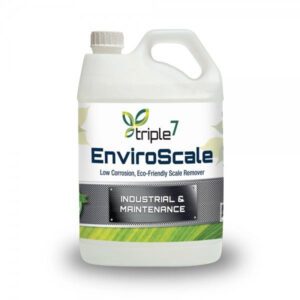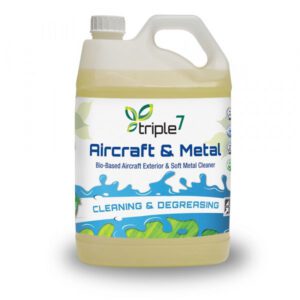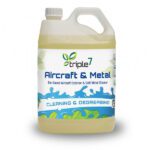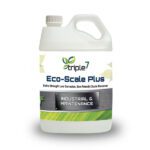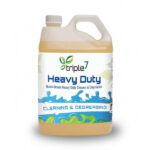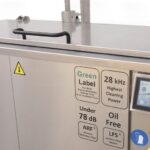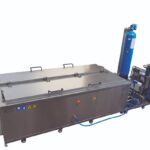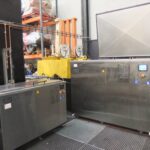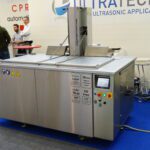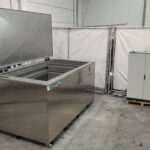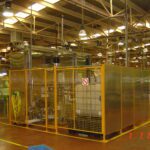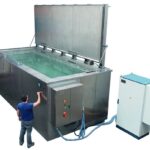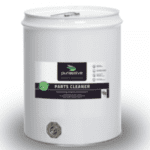Limescale Removal: Improving Efficiency and Reducing Costs in the Refining Industry
Case Study-21
- Home
- Case Studies
- Limescale Removal: Improving Efficiency and Reducing Costs in the Refining Industry
Limescale Removal: Improving Efficiency and Reducing Costs in the Refining Industry
Introduction

Background: Dealing with Limescale Build-up
The refinery in question had been experiencing issues with scaling in their heat exchangers. The buildup of minerals and other contaminants, such as lime scale and calcium deposits, was causing reduced efficiency and increased downtime for cleaning. The traditional method of cleaning, which involved manually scraping away the buildup and then using chemical descalers, was time-consuming and labor-intensive. Additionally, the chemicals used in the cleaning process were harsh and could cause damage to the equipment.
Solution: Bio-Based Descalers and Ultrasonic Cleaning Systems
To address these issues, the refinery decided to try a new approach and implemented a bio-based descaler and ultrasonic cleaning system. These innovative solutions were specifically designed to tackle limescale build-up, calcium deposits, and other mineral contaminants without causing damage to the equipment. The bio-based descaler was made from natural, non-toxic ingredients and provided an effective way to break down the stubborn mineral buildup. The ultrasonic cleaning system utilized high-frequency sound waves to create tiny bubbles that imploded and created a thorough and intense cleaning action.
Implementation: Testing and Scaling Up
The refinery began by testing the bio-based descaler on a small scale, using it to clean a few heat exchangers. The results were impressive, with the descaler quickly breaking down the limescale and calcium deposits, leaving the equipment in a like-new condition. Encouraged by these results, the refinery decided to implement the bio-based descaler and ultrasonic cleaning system on a larger scale, using it to clean all of their heat exchangers.
The process involved circulating the bio-based descaler through the heat exchangers, allowing it to break down the limescale and calcium deposits. Once the descaler had done its job, the ultrasonic cleaning system was used to finish the cleaning process. The intense cleaning action of the ultrasonic waves removed even the most stubborn contaminants, ensuring the heat exchangers were left spotless.
Results: Efficiency and Cost Savings
The results of implementing this solution were clear: the refinery was able to significantly reduce cleaning time, while also improving the overall effectiveness of the cleaning process. The bio-based descaler proved to be highly efficient in breaking down limescale build-up, calcium deposits, and other mineral contaminants. The ultrasonic cleaning system complemented the descaler by removing even the most stubborn contaminants, resulting in a cleaner and more efficient heat exchanger system.
Furthermore, the refinery also saw a reduction in the use of harsh chemicals, such as rust scale and other calcium and limescale removers. This not only helped to protect the environment but also reduced the risk of damage to the equipment. The bio-based descaler and ultrasonic cleaning system were also more cost-effective than the traditional cleaning methods, providing significant savings in both time and money for the refinery.
Conclusion: Enhancing Efficiency and Reducing Costs
This case study illustrates the benefits of using bio-based descalers and ultrasonic cleaning systems in the refining industry. By implementing this innovative solution, the refinery was able to reduce cleaning time, improve the overall effectiveness of the cleaning process, and minimize the use of harsh chemicals. Additionally, the bio-based descaler and ultrasonic cleaning system proved to be more cost-effective than traditional cleaning methods, resulting in significant savings in both time and money.
It is evident that this solution can help refineries increase efficiency and reduce costs, making it a valuable option for companies in the refining industry. The bio-based descaler and ultrasonic cleaning system provide an efficient and environmentally friendly solution to tackle limescale build-up, calcium deposits, and other mineral contaminants. By adopting these innovative technologies, refineries can optimize their cleaning processes, minimize downtime, and achieve long-term savings in maintenance and operational costs.

